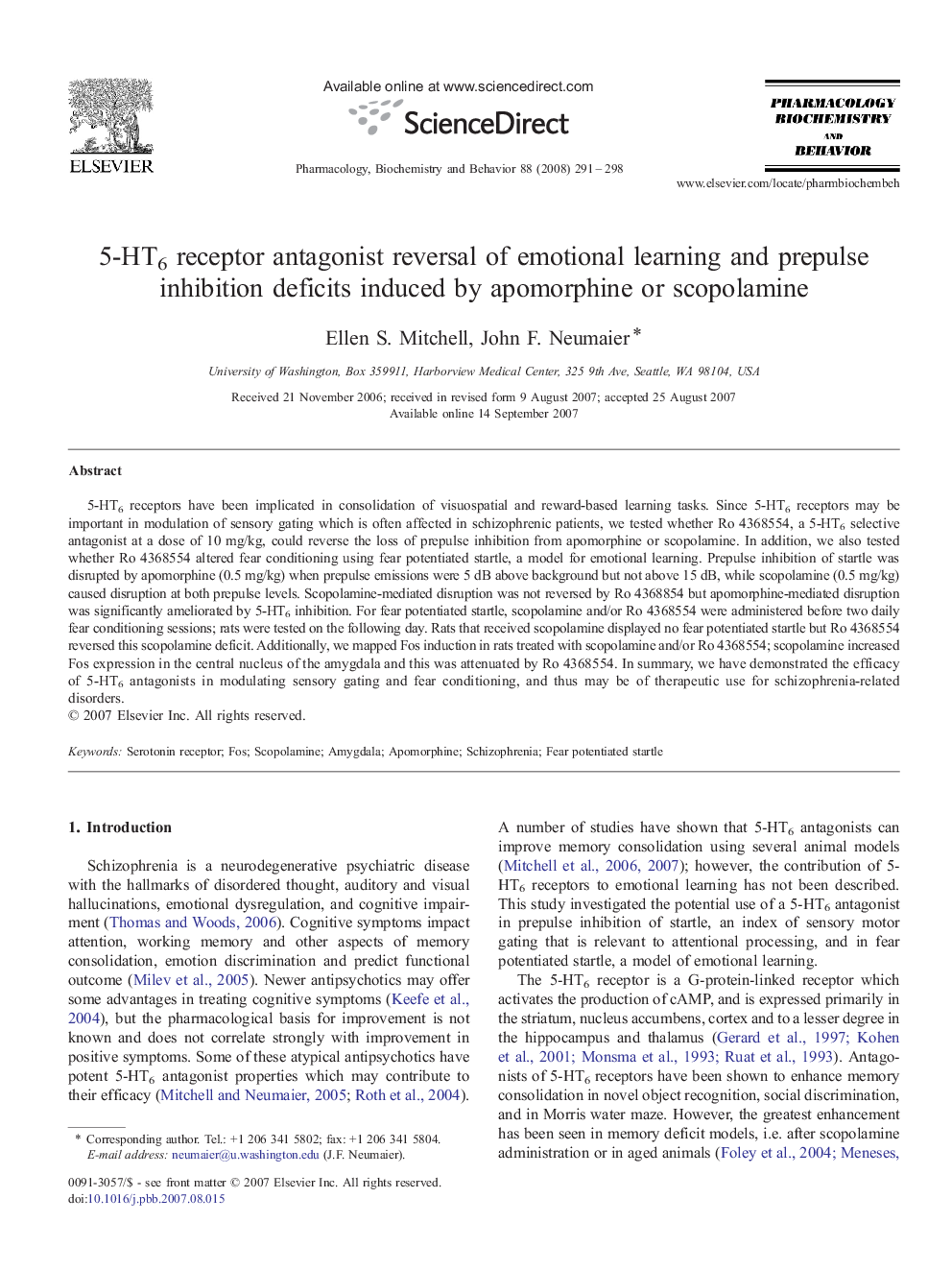| Article ID | Journal | Published Year | Pages | File Type |
|---|---|---|---|---|
| 2013645 | Pharmacology Biochemistry and Behavior | 2008 | 8 Pages |
Abstract
5-HT6 receptors have been implicated in consolidation of visuospatial and reward-based learning tasks. Since 5-HT6 receptors may be important in modulation of sensory gating which is often affected in schizophrenic patients, we tested whether Ro 4368554, a 5-HT6 selective antagonist at a dose of 10Â mg/kg, could reverse the loss of prepulse inhibition from apomorphine or scopolamine. In addition, we also tested whether Ro 4368554 altered fear conditioning using fear potentiated startle, a model for emotional learning. Prepulse inhibition of startle was disrupted by apomorphine (0.5Â mg/kg) when prepulse emissions were 5Â dB above background but not above 15Â dB, while scopolamine (0.5Â mg/kg) caused disruption at both prepulse levels. Scopolamine-mediated disruption was not reversed by Ro 4368854 but apomorphine-mediated disruption was significantly ameliorated by 5-HT6 inhibition. For fear potentiated startle, scopolamine and/or Ro 4368554 were administered before two daily fear conditioning sessions; rats were tested on the following day. Rats that received scopolamine displayed no fear potentiated startle but Ro 4368554 reversed this scopolamine deficit. Additionally, we mapped Fos induction in rats treated with scopolamine and/or Ro 4368554; scopolamine increased Fos expression in the central nucleus of the amygdala and this was attenuated by Ro 4368554. In summary, we have demonstrated the efficacy of 5-HT6 antagonists in modulating sensory gating and fear conditioning, and thus may be of therapeutic use for schizophrenia-related disorders.
Related Topics
Life Sciences
Biochemistry, Genetics and Molecular Biology
Biochemistry
Authors
Ellen S. Mitchell, John F. Neumaier,
